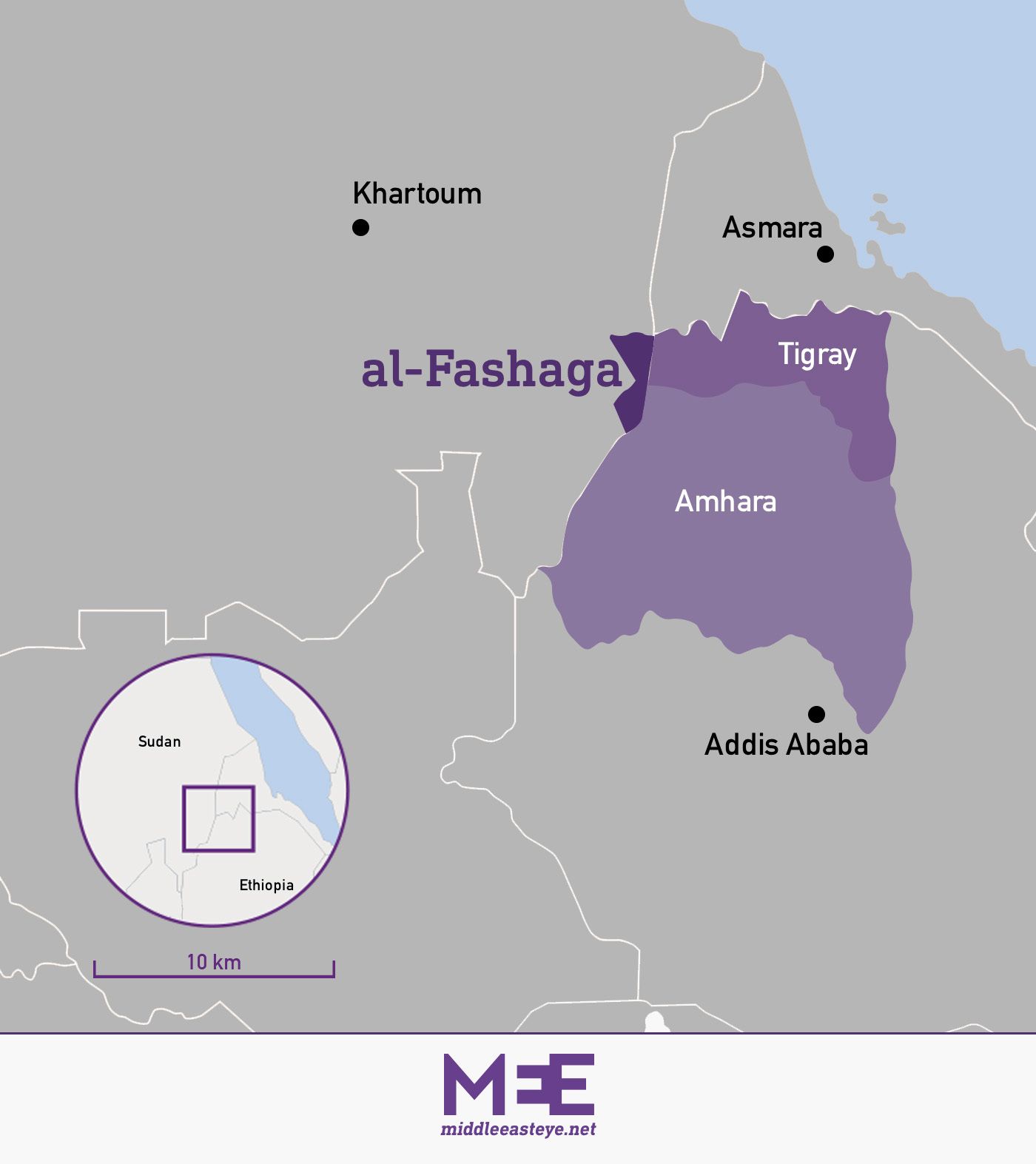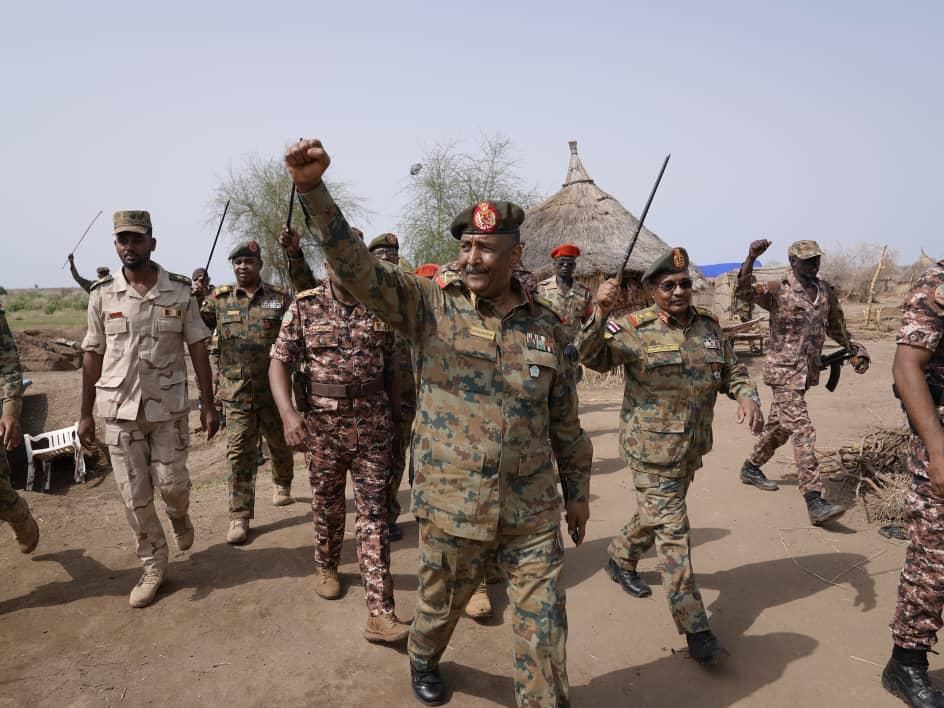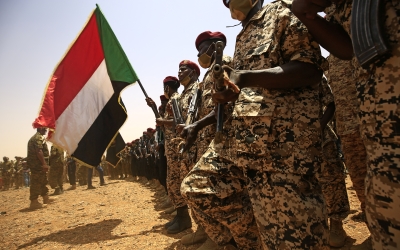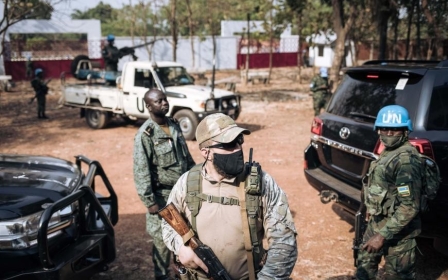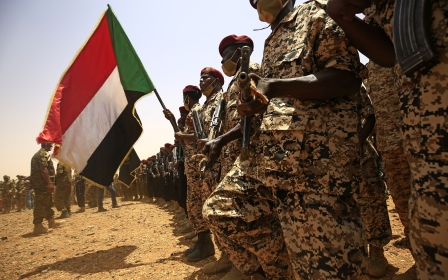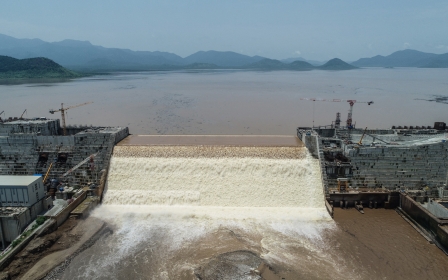Sudan launches assault on Ethiopia after alleged executions
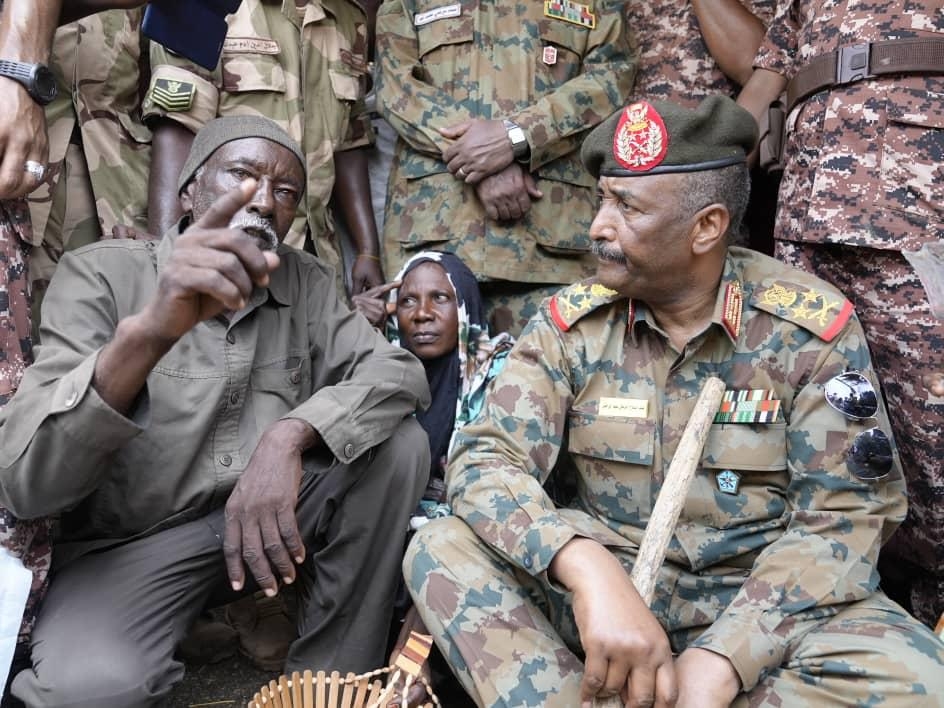
The Sudanese military has launched an offensive against Ethiopian forces along the contested al-Fashaga border with Ethiopia, after the alleged execution of seven soldiers and a civilian ratcheted up tensions between the countries.
Conflict in fertile al-Fashaga, which is claimed by both Khartoum and Addis Ababa, occasionally flares up but has been largely dormant this year as Sudan’s authorities consolidate their rule following an October military coup, while Ethiopia remains embroiled in a brutal civil war.
However, the Sudanese military said on Sunday that seven of its soldiers and a civilian had been executed by Ethiopian forces in Amhara across the border. Sudan said the men were seized in Sudanese territory and brought to Ethiopia last week.
The deaths and claims have sparked military, political and diplomatic escalation, with Ethiopia denying it was responsible for the killings and accusing Sudan of cooperating with the Tigray People’s Liberation Front (TPLF), which the Ethiopian government is at war with.
On Monday evening, clashes between Sudanese and Ethiopian forces were ongoing in al-Fashaga, and Sudan summoned Ethiopia’s ambassador and made a formal complaint to the UN Security Council.
Burhan visits al-Fashaga
Sources told Middle East Eye that clashes were witnessed in various areas of the “small al-Fashaga” region that borders Ethiopia’s Amhara state. Fighting reached the areas of Abu Tyour, al-Asira Galia al-Uban, Birkat Nourain and Gumaiza, they said.
An official in Gadaref state, which includes al-Fashaga, told MEE that the Sudanese army has advanced on different fronts.
“The shelling is ongoing and we heard that our forces have advanced on at least two fronts, but we are not able to know the number of casualties yet,” said al-Rashid Abdul Gadir.
Another al-Fashaga resident, Kamal Yagoub, confirmed the fighting along the Amhara border.
“The war is on the southern side of small Fashaga and east of the Basalam river, so it’s between us and the Amhara militias that are backed by the Ethiopian military,” he said.
Abdul Fattah al-Burhan, Sudan’s ruler and head of the military, visited his troops in al-Fashaga on Monday in a show of force.
“We don’t have a lot to say, we will practically show them our power and strong reply. We can die until we are all dead, and we will support our military by all means,” he said.
Nabil Abdullah, the military spokesman, refused to give MEE further details of the military operations, but insisted the army would “liberate all Sudanese territories”.
Eyewitnesses said military reinforcements were being sent from Gadaref city to al-Fashaga.
Trading accusations
A land spanning over one million acres, al-Fashaga sits between the eastern bank of the Atbara river and the western bank of the Salami river, known as the Tekeze river in Ethiopia.
The region, which was declared as Sudanese in a 1902 agreement between Ethiopian emperor Menelik II and Sudan’s British colonial authorities, has long witnessed disputes and battles between the two countries, especially among farmers.
Though Sudan said the soldiers and the civilian were seized on 22 June, an eyewitness told MEE that the incident happened the day before, when a Sudanese patrol near the al-Fashaga village of al-Asirra came under attack.
Abdullah said the men were captured, taken to Ethiopia and then killed. Their corpses were mutilated, he said. Images purported to be the bodies of the slain soldiers have been circulated online.
However, the eyewitness said the Sudanese had been killed in al-Asirra before being taken to Ethiopia.
“The Sudanese army patrol in al-Asirra village fell to an ambush by the Ethiopian forces, but they unfortunately took the bodies of the soldiers to the Ethiopian territories and took photos of them and sent them through social media,” the source, who asked for anonymity for security reasons, told MEE.
Ethiopia’s foreign ministry said the “tragic incident” occurred within Ethiopian territory after Sudanese troops supported by “TPLF elements” staged an attack. It asked Sudan to practice restraint.
An Ethiopian official told MEE that the Sudanese claims were “propaganda to cover its hidden intelligence war against Ethiopia”.
The source, who is an official in the Amhara region and spoke on condition of anonymity because he was not authorised to speak to the media, said Sudan is trying to conceal its support for the TPLF, which has been at war with the Ethiopian government since November 2020, the month Sudan seized territory from Ethiopia, including al-Fashaga.
“The reason behind this disastrous incident is that a unit from the Sudanese army crossed the borders into Ethiopia without clear reason and cashed with a local militia,” the official said.
“We believed that the Sudanese forces have crossed the border with the help of the Tigray People’s Liberation Front rebels, and this was a serious violation and direct intervention in the domestic issues of Ethiopia itself.”
Internal division
The al-Fashaga conflict has divided opinion among Sudanese political parties and protest groups opposed to the military coup.
Some, like the National Umma Party and Sudanese Congress Party, have called for unity, urging people to support the military in what they called a “war for Sudanese dignity”.
Others, like the influential National Resistance Committee, have labelled it an attempt to draw attention away from Sudan’s domestic crises.
“Burhan wants to mix the papers and draw attention away from the big 30 June rallies we are organising as revolutionary forces to bring his regime down,” a Resistance Committee leader told MEE.
'Abiy has no clear vision to end the civil war in his country, while Burhan is also facing huge internal pressure because of the wide popular rejection to the coup'
- Sudanese political analyst
“After he used violence and killed a lot of people he is now using this manoeuvre to contain the mobilisation of the rally.”
A Sudanese political analyst said the two governments in Khartoum and Addis Ababa are in acute need of something to distract people from crises they can’t solve, with both Burhan and Ethiopian Prime Minister Abiy Ahmed under pressure.
“Burhan and Abiy Ahmed are in bad need of these tactics, as we see Abiy has no clear vision to end the civil war in his country, while Burhan is also facing huge internal pressure because of the wide popular rejection of the coup he committed, as well as the international isolation he is facing since the coup,” he said, speaking anonymously for security reasons.
The analyst also said that there could be other strategic reasons behind the escalation, noting that the third filling of the highly controversial Grand Ethiopian Renaissance Dam is due in July, which may threaten Sudan’s water supply.
Middle East Eye propose une couverture et une analyse indépendantes et incomparables du Moyen-Orient, de l’Afrique du Nord et d’autres régions du monde. Pour en savoir plus sur la reprise de ce contenu et les frais qui s’appliquent, veuillez remplir ce formulaire [en anglais]. Pour en savoir plus sur MEE, cliquez ici [en anglais].


